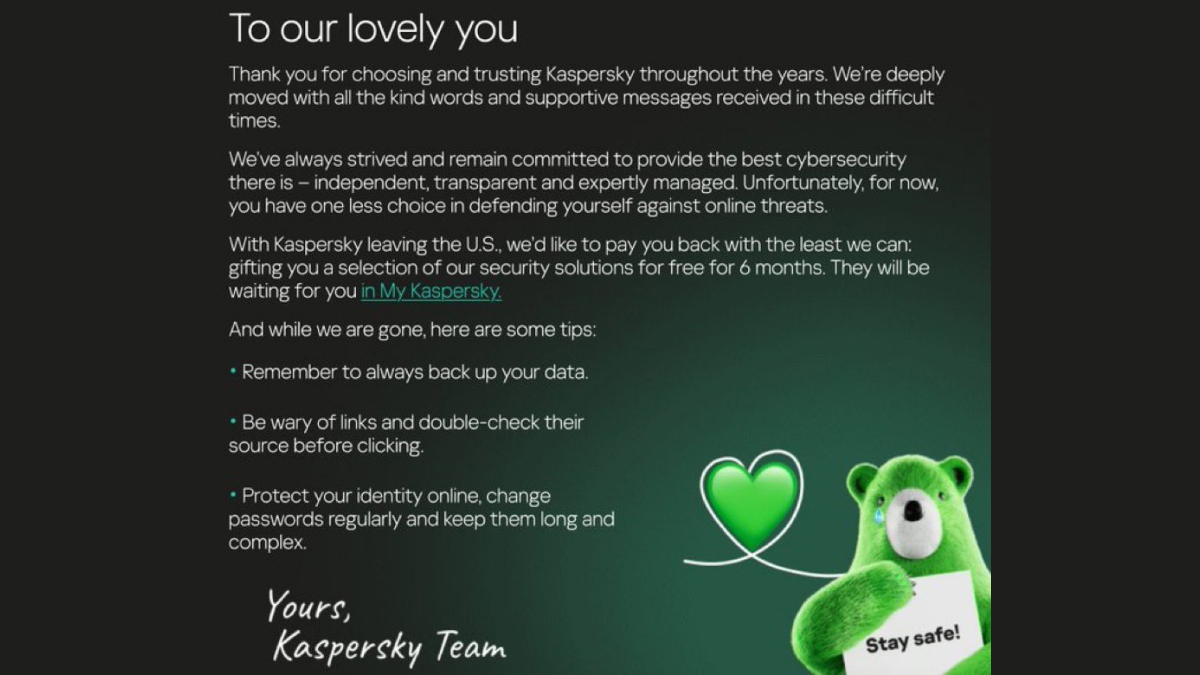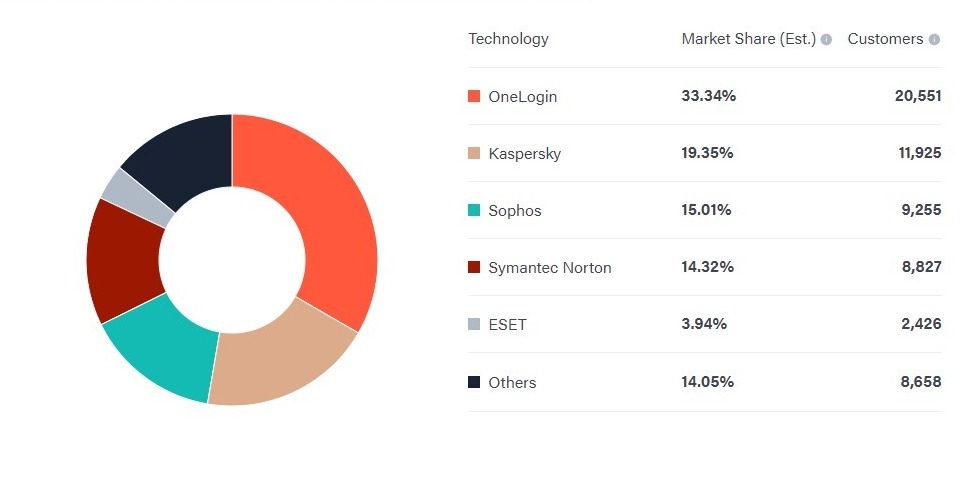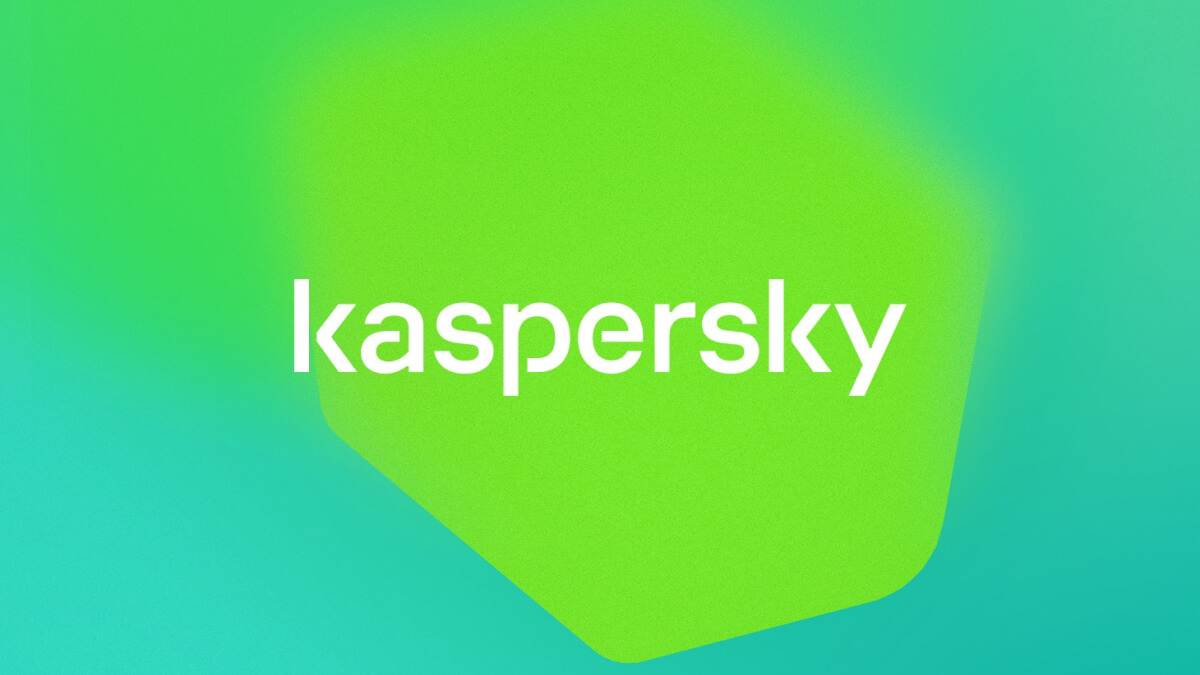The antivirus company Kaspersky is offering American users six months of free security software as a farewell gesture following the U.S. government’s decision to ban its products. Effective later this year, the ban prohibits the sale and updates of Kaspersky software in the United States due to alleged national security concerns.
The U.S. authorities argue that Kaspersky, influenced by the Russian government, poses a threat to national security. They claim that the software’s high-level access could allow it to steal sensitive information, install malware, or withhold critical updates, thereby enhancing the risk of cyberattacks.
In response, Kaspersky has decided to exit the U.S. market and is now showing American users a message on its website offering a selection of its security solutions for free for six months. The message also provides several security tips, including regular backups, frequent password changes, and caution with links.

“To our lovely users, thank you for choosing and trusting Kaspersky throughout the years. We’re deeply moved with all the kind words and supportive messages received in these difficult times,” reads the message from the Kaspersky team. “We’ve always strived and remain committed to providing the best cybersecurity there is – independent, transparent, and expertly managed.”
Kaspersky’s decision to leave the U.S. market is a significant blow to both the company and its American users. The software has been popular among U.S. consumers and businesses for its robust protection against online threats. The company’s exit leaves many users searching for alternative solutions to secure their digital lives.

The offer of free security software is a gesture of goodwill from Kaspersky, aiming to ease the transition for its U.S. customers. “With Kaspersky leaving the U.S., we’d like to pay you back with the least we can: gifting you a selection of our security solutions for free for 6 months. They will be waiting for you in My Kaspersky,” the message continues.
While Kaspersky’s products will no longer be available in the U.S., the company emphasizes the importance of cybersecurity practices that users can adopt independently. Their advice includes regularly backing up data, being cautious with email links, and using complex, frequently changed passwords to protect online accounts.
The U.S. government’s concerns about Kaspersky stem from the potential for the Russian government to compel the company to assist in espionage or cyber operations. These concerns are not new; in 2017, the Department of Homeland Security banned Kaspersky’s flagship antivirus product from federal networks, citing similar security risks.
Despite these accusations, Kaspersky maintains that its activities do not threaten U.S. national security and that the U.S. decision is based on geopolitical concerns rather than a comprehensive evaluation of its products and services. “We’ve always strived to provide independent and transparent cybersecurity,” Kaspersky states.
The U.S. ban on Kaspersky is part of a broader strategy to mitigate potential risks from foreign technology companies, especially those based in adversarial nations like Russia and China. Commerce Secretary Gina Raimondo emphasized the need to protect American networks and devices from potential threats posed by such software.
“We would never give an adversarial nation the keys to our networks or devices, so it’s crazy to think that we would continue to allow Russian software with the deepest possible device access to be sold to Americans,” said Democratic Senator Mark Warner, chair of the Senate Intelligence Committee.
